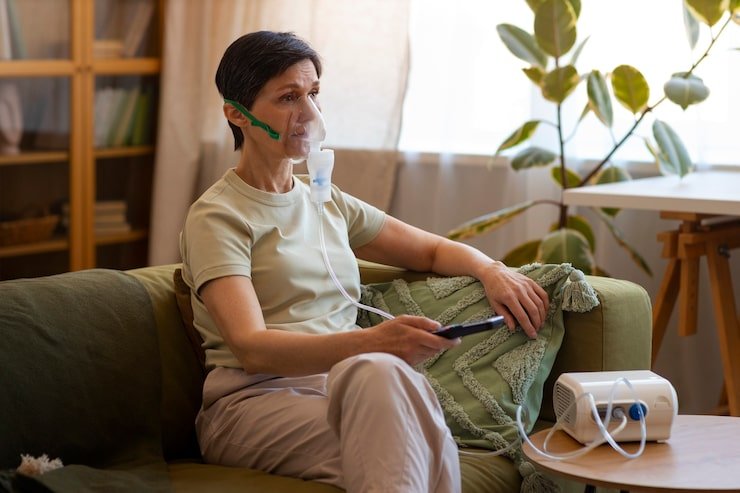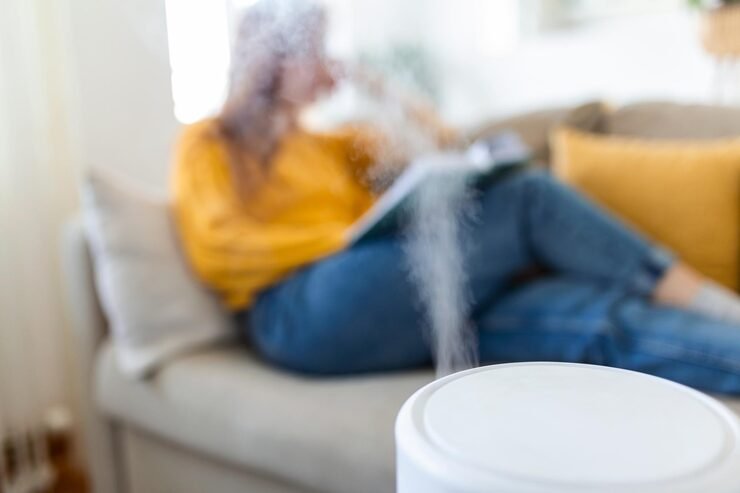Why Air Quality Testing Matters: Protecting Your Family’s Health at Home
- admin323029
- Blog

Indoor air impacts your health every day. Many families in Massachusetts spend most of their time indoors. Without Air Quality Testing, you risk exposure to hidden pollutants. These pollutants affect your lungs, immune system, and overall wellbeing. Testing gives you clarity and control over what you breathe.
What Is Air Quality Testing?
Air Quality Testing measures pollutants in your home. This includes mold spores, volatile organic compounds (VOCs), carbon monoxide, radon, and allergens. A professional inspection helps you understand what you are breathing. Reports highlight unsafe levels and provide steps for improvement. For Massachusetts families, this is essential in older homes, basements, or properties near construction or high traffic areas.
Why Air Quality Testing Protects Your Health
Poor air quality harms children, seniors, and people with asthma or allergies. Mold exposure triggers coughing, wheezing, and long-term respiratory issues. VOCs from paints, cleaning products, or furniture affect sleep, focus, and energy levels. Radon, a common problem in Massachusetts basements, increases cancer risk. Air Quality Testing identifies these problems before they impact your family. Reliable data helps you make decisions to protect your home environment.
Signs You Need Air Quality Testing
You should schedule Air Quality Testing if you notice:
-
Frequent coughing, sneezing, or watery eyes indoors.
-
Strong or musty odors that do not fade.
-
Headaches or fatigue that improve when outside.
-
Visible mold growth or water damage.
-
Recently renovated areas with new carpets, paints, or furniture.
Many Massachusetts homeowners wait until symptoms appear, but prevention is safer. Testing allows you to act early.
Air Quality Testing Process
Professional inspectors follow a clear process:
-
Visual inspection of areas prone to moisture or poor ventilation.
-
Collection of air samples in different rooms.
-
Use of advanced instruments to measure VOCs, humidity, and particulates.
-
Laboratory analysis of samples for mold and allergens.
-
Delivery of a clear, written report with findings and next steps.
The process is straightforward, and most tests are completed in a single visit. This service gives you actionable information without guesswork.
Air Quality Testing and Massachusetts Homes
Massachusetts has unique risks due to its climate and housing styles. Cold winters mean homes stay sealed, trapping pollutants indoors. Older homes often contain asbestos or lead-based materials. Basements in the region are prone to moisture, increasing mold growth. By choosing Air Quality Testing, Massachusetts homeowners stay ahead of these local risks. The results guide practical improvements such as sealing leaks, upgrading ventilation, or using air purification systems.
Benefits of Professional Air Quality Testing
Professional testing offers several advantages:
-
Accurate data compared to store-bought devices.
-
Identification of multiple pollutants in one process.
-
Recommendations tailored to your home and family.
-
Peace of mind knowing your air is safe.
For families planning to buy or sell property in Massachusetts, an inspection adds confidence to the transaction. Clean air is a valuable feature for any home.
Air Quality Testing and Prevention
Testing is not only about fixing problems. It helps prevent them from worsening. For example, early detection of mold allows small repairs instead of costly remediation. Identifying VOC sources helps you choose safer cleaning products or building materials. Knowing your baseline air quality makes it easier to track improvements after upgrades.
Practical Steps After Air Quality Testing
Once you receive your report, you can take simple steps:
-
Use dehumidifiers in damp areas.
-
Replace HVAC filters every 60 to 90 days.
-
Choose low-VOC paints and materials.
-
Ventilate kitchens and bathrooms.
-
Seal foundation cracks to reduce radon entry.
Each step reduces risk and improves comfort. Your inspector will give recommendations tailored to your home.
External Resources for Reliable Guidance
To learn more about indoor air quality, visit the Environmental Protection Agency’s guide on Indoor Air Quality. Massachusetts residents can also review state resources at Mass.gov for local air quality updates and health guidelines. These sources provide trustworthy advice for protecting your family.
Take Action Today
Do not wait for health symptoms before addressing your home’s air. Professional Air Quality Testing gives you clarity and confidence. For Massachusetts families, this is an investment in health, comfort, and long-term property value. Schedule your inspection today and protect your family’s future.
FAQs about Air Quality Testing
1. What is the main purpose of Air Quality Testing?
Air Quality Testing identifies pollutants in your home such as mold, VOCs, and allergens. The goal is to protect your health and give you a clear plan to improve indoor conditions.
2. How often should Massachusetts homeowners schedule Air Quality Testing?
Experts recommend testing every 2 to 3 years, or sooner if you notice symptoms, water damage, or renovations. In Massachusetts, basements and older homes make regular testing even more important.
3. How long does Air Quality Testing take?
A typical inspection takes a few hours. The samples are then analyzed in a lab, and results are usually available within a week. This timeline ensures accuracy.
4. Is Air Quality Testing worth it for new homes?
Yes. New homes in Massachusetts often have high levels of VOCs from fresh paint, carpets, and construction materials. Testing helps you manage these risks early.
5. What happens if Air Quality Testing finds a problem?
You will receive a detailed report with recommendations. These may include cleaning mold, improving ventilation, or addressing radon. A professional inspector will guide you through solutions.
Are you worried about the cleanliness of your space?
Let us help you! Cleaning services are our specialty, and we offer a complete range of cleaning and maintenance services. Get a free estimate!



